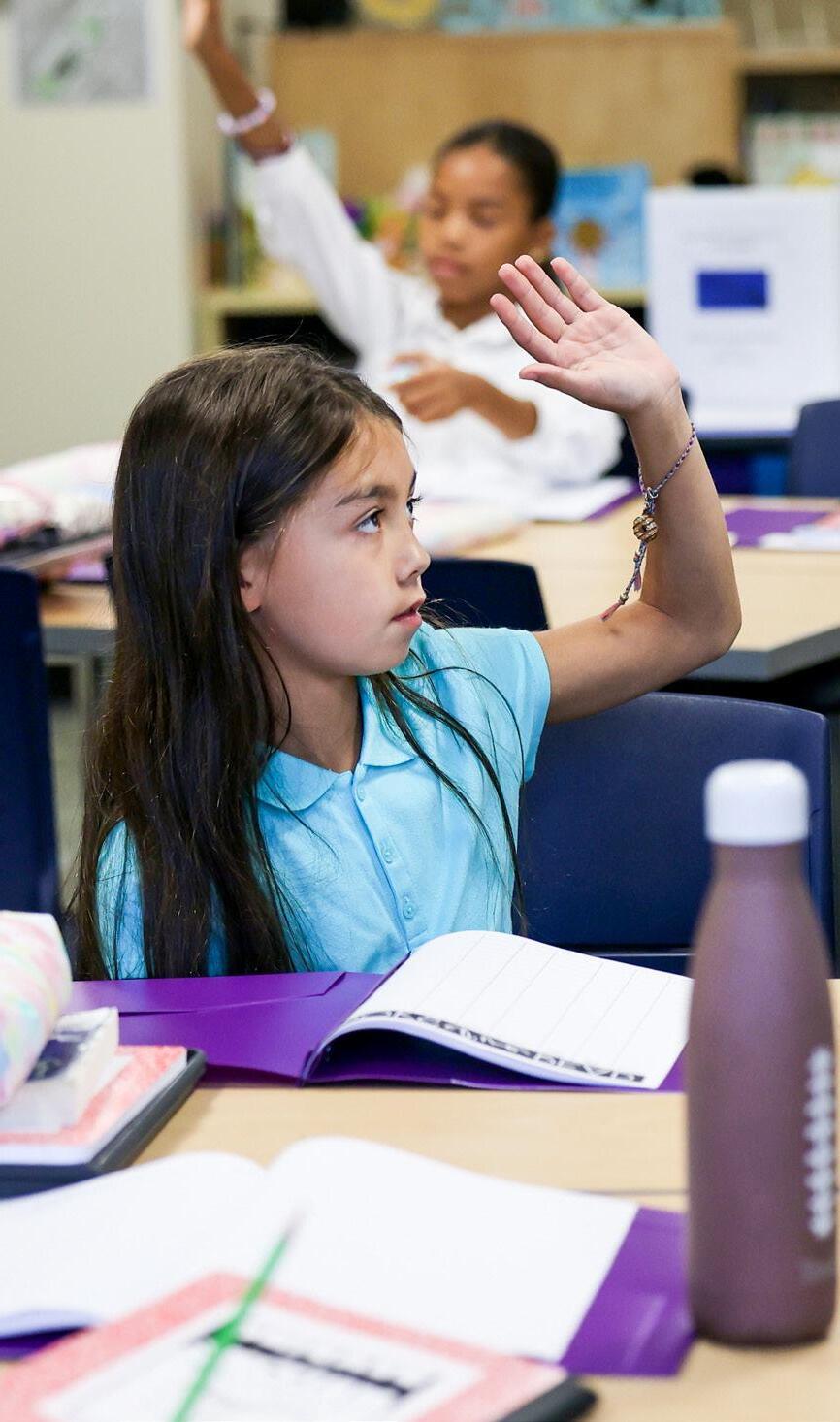
2 minute read
HUMANITIES
In Middle School English, teachers select readings that provide both “windows and mirrors” for students. This means that literature gives students “windows” into understanding different worlds, as well as “mirrors” through characters who resonate with them personally. In the same way, Middle School writing is an empowering exercise where students strengthen their unique voices and speak to their individual passions.
In Upper School, we continue the “windows and mirrors” approach through literature that reflects the wide range of individual experiences of a collective, complex world. We aim to instill compassion in our students and help them develop ethical frameworks. Students reflect on their own experiences to better understand themselves, and on the experiences of others unlike them to better understand the wider world. The English department’s reading selections include canonical and underrepresented perspectives, naturally inviting conversations about the different ways social, historical, economic, and cultural forces affect people differently.
English History
In Middle School History, students explore local, national, and global cultures, as they grapple with current events, changing and conflicting values. Over the course of four years, students consider human rights on a global scale and how different people, cultures, and religious groups see the world, express their beliefs, and establish their values. These lessons are aided by Harkness pedagogy which emphasizes skills of listening and perspective-taking. Multiple perspectives are further encouraged with a Learning for Justice resource that sets the norms for using key terms to understand history and America. Students consider how America formed politically, with consideration of the impact of enslavement and Westward Expansion.
In Upper School History, pedagogical approaches at every level require students to consider the meaning of evidence from multiple perspectives. Teachers encourage close reading and interpretation of historical evidence and expect students to reach rational conclusions from such evidence, but also push students to consider multiple ways of interpreting such evidence before reaching such conclusions. In addition, teachers encourage expressions of student individuality and perspective-sharing in daily lessons. Increasingly, student choice in research topics gives students agency to direct their own learning about topics of personal relevance. Over the course of their Upper School experience, students examine issues of individual identity, political power, collective action, and historical interpretation.
The Department of Leadership Studies offers courses designed to study leadership with an academic lens. In a world where rapid change regularly redefines the future, the courses ask students to engage in collaborative study that broadens ethical understanding, increases empathy, shapes multicultural perspectives, and serves the greater good. With the exception of Debate 8, Leadership Studies courses are elective course offerings in the Upper School. The courses are united in their goals of teaching leadership skills: civil discourse, perspectivetaking, ethical reasoning, collaboration, and problem-solving. In all of the courses, students are exposed to and discuss differing worldviews, frames of thought, and cultural systems. Courses examine power structures, access to resources, how and by whom stories are told, and community-based approaches to problem-solving.





